Discover Endocrine News Podcast
Endocrine News Podcast

Endocrine News Podcast
Author: Endocrine Society
Subscribed: 252Played: 5,206Subscribe
Share
© Endocrine Society. Copyright 2025
Description
The Endocrine News Podcast, a free service of the Endocrine Society, features interviews with experts addressing the latest research and trends in the field of endocrinology. Let us know what you’d like to hear about in a future episode at podcast@endocrine.org.
110 Episodes
Reverse
In the last five years, the field of artificial intelligence and robotics has taken off and has become a part of our everyday life, and it continues to grow and evolve. How are AI and robotics shaping the field of medicine? How is it improving the lives of doctors and patients? We used to ask, “What is the role of AI in medicine?” Are we getting closer to a time where we’ll be asking what the role is of humans? To help us answer these questions, host Aaron Lohr talks with Hassan M. Heshmati, MD. Dr. Heshmati has been a physician for 49 years and an endocrinologist for 45 years, with experience in clinical research and academia and in the pharmaceutical biotech industry. He founded Endocrinology Metabolism Consulting, based in Anthem, Ariz., and presented an abstract at ENDO 2025 titled, “Update on the Use of Robotic Surgery and Artificial Intelligence for Adrenal Tumors.” Show notes are available at https://www.endocrine.org/podcast/enp108 — for helpful links or to hear more podcast episodes, visit https://www.endocrine.org/podcast
Technically known as glucagon-like peptide-1 receptor agonists, or GLP-1, these drugs have been around for years for treating diabetes. Now it seems most people think of GLP-1 drugs as medications to lose weight, and these medications are so popular that for a time, supply could not meet demand, leaving many to seek compounded GLP-1 medications, which were more accessible and affordable. However, compounded medications are not FDA-approved, and there are questions regarding their safety and efficacy. What do doctors and patients need to know when considering using compounded obesity medications? To help answer this, host Aaron Lohr talks with Michael Weintraub, MD, an endocrinologist at NYU Langone Division of Endocrinology. Dr. Weintraub serves on the exam writing committee for the American Board of Obesity Medicine. Support for this episode was provided by Lilly. Show notes are available at https://www.endocrine.org/podcast/enp107 — for helpful links or to hear more podcast episodes, visit https://www.endocrine.org/podcast
Bariatric surgery is a procedure used to manage obesity and obesity-related conditions. While studies have shown that bariatric surgery leads to significant weight loss, are there cases where it may be important to consider reversing the procedure? What would such cases look like? How effectively can bariatric surgery be reversed? To help explore those questions, host Aaron Lohr talks with Katherine Hazen, MD, a second-year endocrine fellow at the University of Rochester Medical Center. She and colleagues presented an abstract at ENDO 2025 titled, “Going Backwards as a Means of Moving Forward: Severe Hypoglycemia After Bariatric Surgery.” Show notes are available at https://www.endocrine.org/podcast/enp106 — for helpful links or to hear more podcast episodes, visit https://www.endocrine.org/podcast
In this episode, we take a closer look at tirzepatide, a type 2 diabetes medication also used to help with weight loss. Postmenopause weight gain can be a normal part of aging, and there are some questions about whether medications like tirzepatide could be useful and safe for postmenopausal women. Host Aaron Lohr talks with Maria Daniela Hurtado Andrade, MD, PhD, assistant professor of medicine at Mayo Clinic Florida, and Regina Castaneda, MD, a research fellow at Mayo Clinic College of Medicine & Science. They presented an abstract at ENDO 2025 titled, “One-Year Real-World Weight Loss Outcomes with Tirzepatide in Postmenopausal Women With and Without Hormone Therapy.” Show notes are available at https://www.endocrine.org/podcast/enp105 — for helpful links or to hear more podcast episodes, visit https://www.endocrine.org/podcast
In the United States, the Food and Drug Administration doesn’t regulate supplements for safety and efficacy, so manufacturers don’t have to disclose their ingredients. We can’t always know for certain what’s in supplements we buy over the counter. Host Aaron Lohr talks with Meghana Pattipati, MD, an endocrine specialist at Ochsner Lafayette General Medical Center in Louisiana. Dr. Pattipati presented a study at ENDO 2025 in San Francisco titled, “Beware of the Hidden Ingredients and Supplement Use in Your Patients With Elevated Testosterone.” The presentation describes a case where a patient unknowingly ingested an ingredient that had a significant endocrine impact. Show notes are available at https://www.endocrine.org/podcast/enp104 — for helpful links or to hear more podcast episodes, visit https://www.endocrine.org/podcast
Recently the Endocrine Society held its 12th annual Type 1 Diabetes Fellows Series program, which combines comprehensive education on type 1 diabetes with career development opportunities to build knowledge, practical skills, and a lasting network of colleagues. For this episode, host Aaron Lohr talks with Desmond Schatz, MD, medical director of the Diabetes Institute and director of the Clinical Research Center at the University of Florida. Dr. Schatz gave a talk at the fellows series program titled, “Immunotherapies for Type 1 Diabetes: Need for Early Detection and Screening.” This year’s fellows series program and this episode were made possible by the support of Abbott Diabetes Care, CeQur Corp., Dexcom Inc., Insulet Corp., Breakthrough T1D (formerly the Juvenile Diabetes Research Foundation), Lilly USA, Mankind Pharma Limited, Medtronic Inc., Novo Nordisk Inc., and Vertex Pharmaceuticals Inc. Show notes are available at https://www.endocrine.org/podcast/enp103 — for helpful links or to hear more podcast episodes, visit https://www.endocrine.org/podcast
In this episode, we cover type 1 diabetes and especially insulin delivery systems. Host Aaron Lohr talks with Grazia Aleppo, MD, from Northwestern University’s Feinberg School of Medicine and Diana Isaacs, PharmD, director of education and training in diabetes technology at the Cleveland Clinic. This episode is certified for up to 0.5 AMA PRA Category 1 credits and ABIM MOC points. However, claiming those points requires taking a pre-episode test. Then you must listen to the episode on the Endocrine Society’s Center for Learning website, followed by a post-episode test and evaluation. Please check the show notes for the appropriate link. This episode is supported by educational grants by MannKind Corp. and Insulet Corp. Show notes are available at https://www.endocrine.org/podcast/enp102 — for helpful links or to hear more podcast episodes, visit https://www.endocrine.org/podcast
Papillary thyroid cancer is the most common type of thyroid cancer, and yet in rare cases, this cancer may originate in locations other than the thyroid glands. In this episode, host Aaron Lohr talks about causes, prevalence, and treatment for papillary thyroid cancer and the rare phenomenon known as ectopic papillary thyroid cancer with Nikita Dhir, MD, of University of Texas Health Science Center at Houston. Dr. Dhir and colleagues presented research at ENDO 2025 in San Francisco titled, “Where Is the Primary Papillary Thyroid Cancer?” Show notes are available at https://www.endocrine.org/podcast/enp101 — for helpful links or to hear more podcast episodes, visit https://www.endocrine.org/podcast
After seven years, we have reached our 100th episode! For this, we talk about growth hormone deficiency, about causes, prevalence, why some types may become permanent, available treatments, and the importance of adherence to treatment plans. Host Aaron Lohr talks with Sandro Loche, MD, of Bambino Gesù Children’s Hospital in Rome, Italy. Recently, Dr. Loche and colleagues presented research at ENDO 2025 in San Francisco titled, “Adherence to GH Treatment in the Transition Age: A Prospective Study.” Show notes are available at https://www.endocrine.org/podcast/enp100 — for helpful links or to hear more podcast episodes, visit https://www.endocrine.org/podcast
Recently the Endocrine Society’s Bone and Mineral Special Interest Group discussed the importance of fracture liaison services and how they contribute to an improved quality of life for patients and cost saving for the facility. An important part of the discussion revolved around a recent perspective published in The New England Journal of Medicine titled, “Coordinating Multidisciplinary Care — Improving Outcomes after Fragility Fractures.” The article notes that despite the benefits of fracture liaison services, the lack of reimbursement for those services in the United States is a significant financial barrier, rendering the service underutilized. The article further states that the global burden of hip fractures is expected to double over the next few decades. Are we looking at an impending crisis? What role should fracture liaison services play in reducing treatment gaps and improving post-fracture care? Host Aaron Lohr talks with the three authors of that New England Journal of Medicine perspective: Nicola Napoli, MD, PhD, associate professor of endocrinology and metabolism at Campus Bio-Medico University of Rome, Italy; Peter Ebeling, AO, professor medicine at Monash University in Melbourne, Vic., Australia; and Douglas P. Kiel, MD, professor of medicine at Marcus Institute for Aging Research at Hebrew Senior Life. Show notes are available at https://www.endocrine.org/podcast/enp99 — for helpful links or to hear more podcast episodes, visit https://www.endocrine.org/podcast
Increased prescription of opioid medications like oxycodone and hydrocodone has led to widespread misuse of both prescription and non-prescription opioids. But did you know that opioid misuse can significantly impact the endocrine system? The Endocrine Society recently published a scientific statement titled, “Exogenous Opioids and the Human Endocrine System: An Endocrine Society Scientific Statement.” The statement reviews data on the use and misuse of opioids and discusses recent research on the endocrine-related implications of opioid use. Host Aaron Lohr talks to one of the statement’s authors, Niki Karavitaki, MD, PhD, a professor from the Institute of Metabolism and Systems Research at the University of Birmingham in the United Kingdom. Show notes are available at https://www.endocrine.org/podcast/enp98-opioids-and-the-endocrine-system — for helpful links or to hear more podcast episodes, visit https://www.endocrine.org/podcast
What treatment options are available for children and adolescents with obesity? Host Aaron Lohr takes on this topic with Susan J. Woolford, MD, associate professor in the Child Health Evaluation and Research Center at the University of Michigan, and Sarah Giger, MD, a clinical fellow at Cincinnati’s Children’s Hospital. Both took part in the Endocrine Society’s recent obesity fellows conference. This episode is supported by an educational grant from Lilly and Novo Nordisk. Also, this episode is available to listen for 0.5 CME credits, but you must follow the link to the show notes and read the instructions in order to earn those points. Show notes are available at https://www.endocrine.org/podcast/enp97-childhood-obesity-treatment — for helpful links or to hear more podcast episodes, visit https://www.endocrine.org/podcast
There is a lot of interest in automated insulin delivery systems, and they were covered in depth at the Endocrine Society’s Type 1 Diabetes Fellows Series, held earlier this year. Joining host Aaron Lohr to talk about these delivery systems is Grazia Aleppo, MD, a professor of medicine at Northwestern University and a presenter at the T1D Fellows Series. Show notes are available at https://www.endocrine.org/podcast/enp96-automated-insulin-delivery-systems — for helpful links or to hear more podcast episodes, visit https://www.endocrine.org/podcast
There are plenty of studies showing that chemicals found in the environment can directly impact human health. Some new research finds that certain environmental compounds may trigger early female puberty. Joining host Aaron Lohr to talk about that research is Natalie Shaw, MD, a Lasker clinical research scholar and principal investigator of the pediatric neuroendocrinology group in the Clinical Research Branch of the National Institute of Environmental Health Sciences. Dr. Shaw and colleagues authored an article recently published in the journal Endocrinology titled, “Identification of Environmental Compounds That May Trigger Early Female Puberty by Activating Human GnRHR and KISS1R.” Show notes are available at https://www.endocrine.org/podcast/enp95-environmental-impact-on-early-female-puberty — for helpful links or to hear more podcast episodes, visit https://www.endocrine.org/podcast
It’s been a few years, but we are here with an update on acromegaly, covering prevalence, diagnosis, traditional treatment, new therapies, and current gaps in understanding. Host Aaron Lohr talks again with Maria Fleseriu, MD, professor of medicine and professor of neurological surgery at Oregon Health & Science University School of Medicine and director of OHSU’s Pituitary Center. Dr. Fleseriu also serves on the Board of Directors of the Endocrine Society. Show notes are available at https://www.endocrine.org/podcast/enp94-update-on-acromegaly — for helpful links or to hear more podcast episodes, visit https://www.endocrine.org/podcast
Host Aaron Lohr talks with Rita Kalyani, MD, professor of medicine at Johns Hopkins University School of Medicine and president-elect of medicine and science at the American Diabetes Association. Earlier this year, Dr. Kalyani and colleagues published a position statement in The Journal of Clinical Endocrinology & Metabolism titled, “Prioritizing Patient Experiences in the Management of Diabetes and Its Complications: An Endocrine Society Position Statement.” Show notes are available at https://www.endocrine.org/podcast/enp93-patience-experience-in-managing-diabetes — for helpful links or to hear more podcast episodes, visit https://www.endocrine.org/podcast
In this episode, we talk about pheochromocytomas. Host Aaron Lohr talks with Nikhitha Chandrashekar, MD, who recently finished her endocrinology fellowship at University Hospitals Case Western Reserve University in Cleveland. Dr. Chandrashekar presented a case study on pheochromocytomas at ENDO 2024. Show notes are available at https://www.endocrine.org/podcast/enp92-pheochromocytomas — for helpful links or to hear more podcast episodes, visit https://www.endocrine.org/podcast
Our bodies typically do a remarkable job of recovering from certain injuries, and thyroid hormone signaling has an essential role to play there. But what is that process like for someone with hypothyroidism, and is there a unique role in that process for muscle stem cells? Host Aaron Lohr talks with Paola Aguiari, PhD, a senior research specialist at Children’s Hospital Los Angeles. She presented an abstract at ENDO 2024 titled, “Hypothyroidism Impairs Skeletal Muscle Regeneration After Injury.” Show notes are available at https://www.endocrine.org/podcast/enp91-hypothyroidism-and-muscle-regeneration — for helpful links or to hear more podcast episodes, visit https://www.endocrine.org/podcast
We all know that stress leads to a number of negative outcomes. In this episode, we talk about how early life stress may influence youth substance use initiation and some endocrine factors that may be helping to drive that influence. Host Aaron Lohr talks with Alexandra M. Donovan, PhD, of the Charles R. Drew University of Medicine and Science. Dr. Donovan recently presented an abstract at ENDO 2024 titled, “Early Life Stress and Pubertal Predictors of Youth Substance Use Initiation: Does Sex Moderate the Relationship Between Early Life Stress, Puberty, and Substance Use Initiation?” Show notes are available at https://www.endocrine.org/podcast/enp90-early-life-stress-and-substance-use — for helpful links or to hear more podcast episodes, visit https://www.endocrine.org/podcast
In this episode, we talk about brown fat and some new discoveries in how it regulates metabolic function. Joining host Aaron Lohr is Marsel Lino, PhD, a research fellow at Joslin Diabetes Center in Boston. Dr. Lino presented an abstract at ENDO 2024 titled, “A New Layer of Endocrine Regulation: Brown Fat Secretes Exosomal MicroRNAs, Which Regulate Metabolic Functions and Distal Organs.” Show notes are available at https://www.endocrine.org/podcast/enp89-brown-fat-and-metabolic-function — for helpful links or to hear more podcast episodes, visit https://www.endocrine.org/podcast


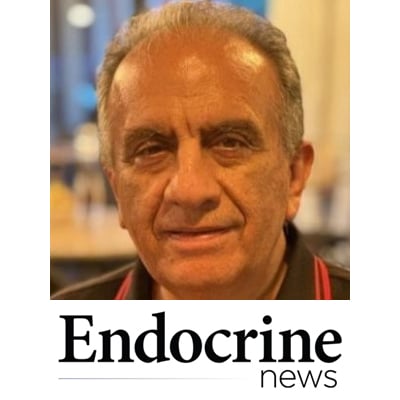
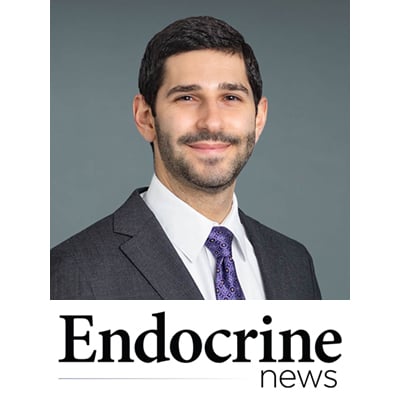
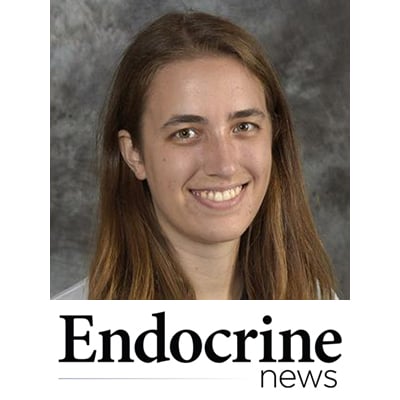
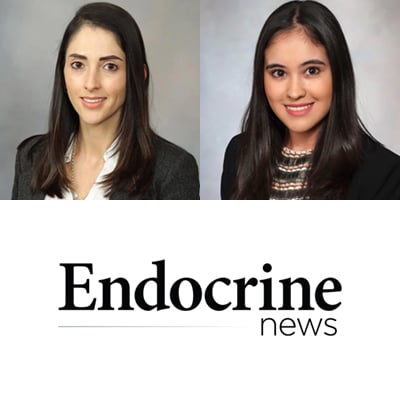
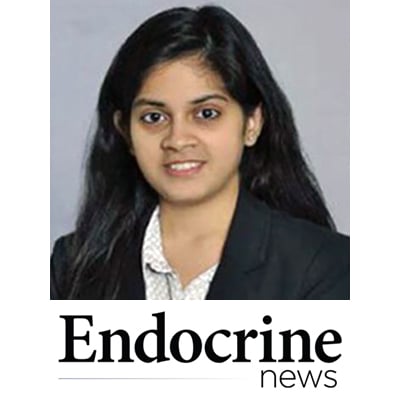
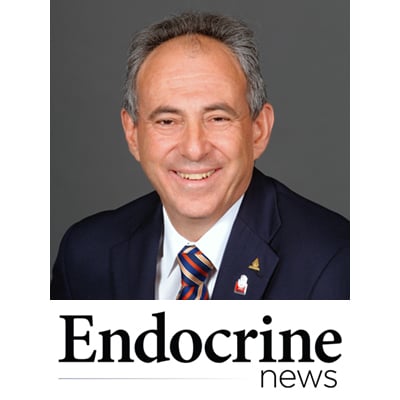
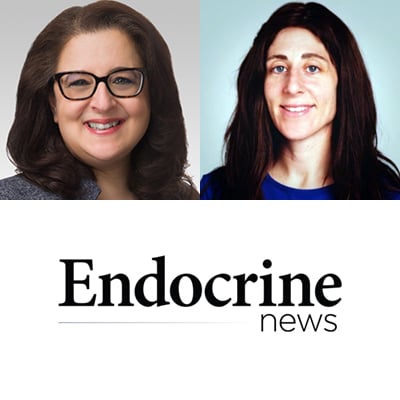
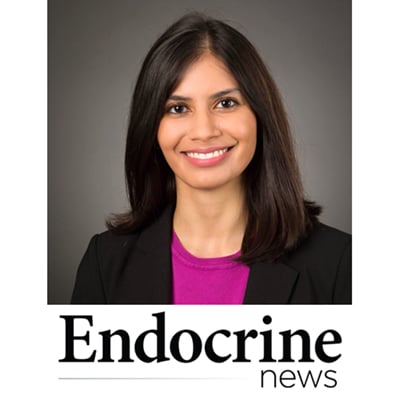
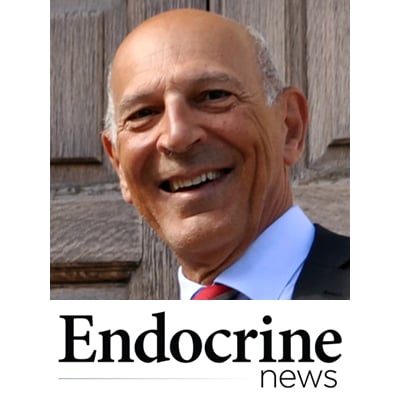
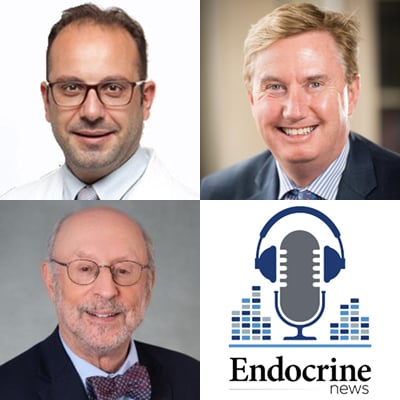
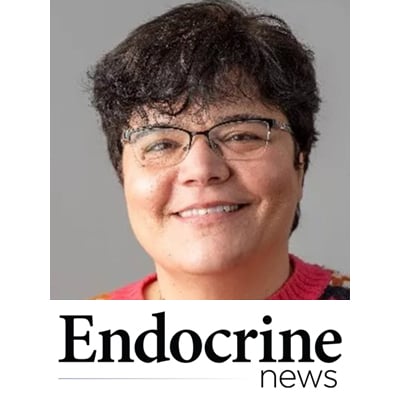
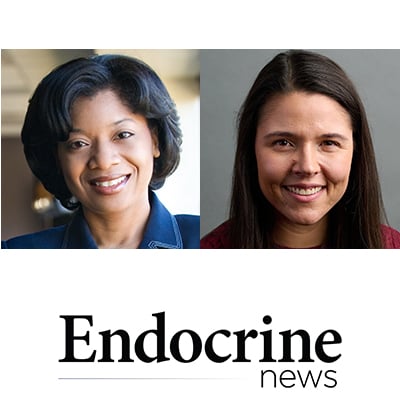
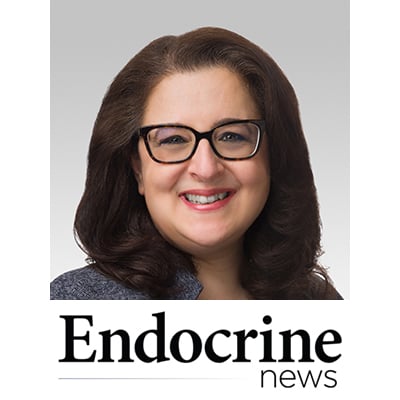
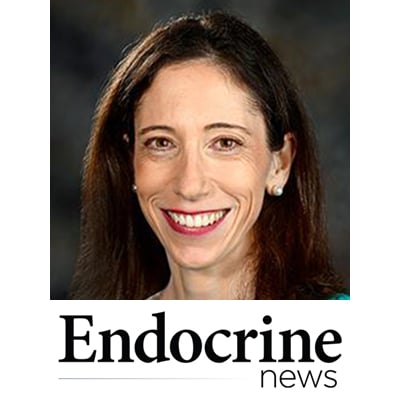
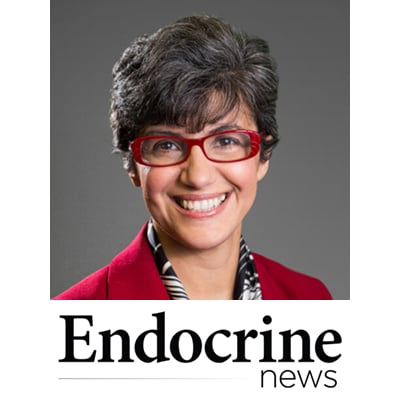




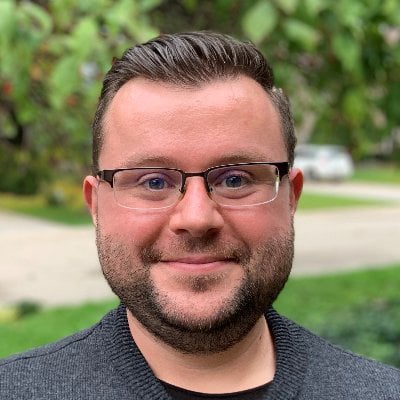



فئوکروموسیتوم یک نوع نادر و کمیاب از تومور غدد فوق کلیه است که مقدار زیادی کاتکولامین (هورمونهایی که مغز، بافتهای عصبی و غدد فوق کلیوی را کنترل میکنند) را تولید میکند. این بیماری علت مشخصی ندارد و باعث فشار خون بالا، تپش قلب و سردرد میشود. درمان فئوکروموسیتوما در درجه اول شامل برداشتن تومور با جراحی همراه با مدیریت دارویی فشار خون قبل از عمل و بعد از عمل است.